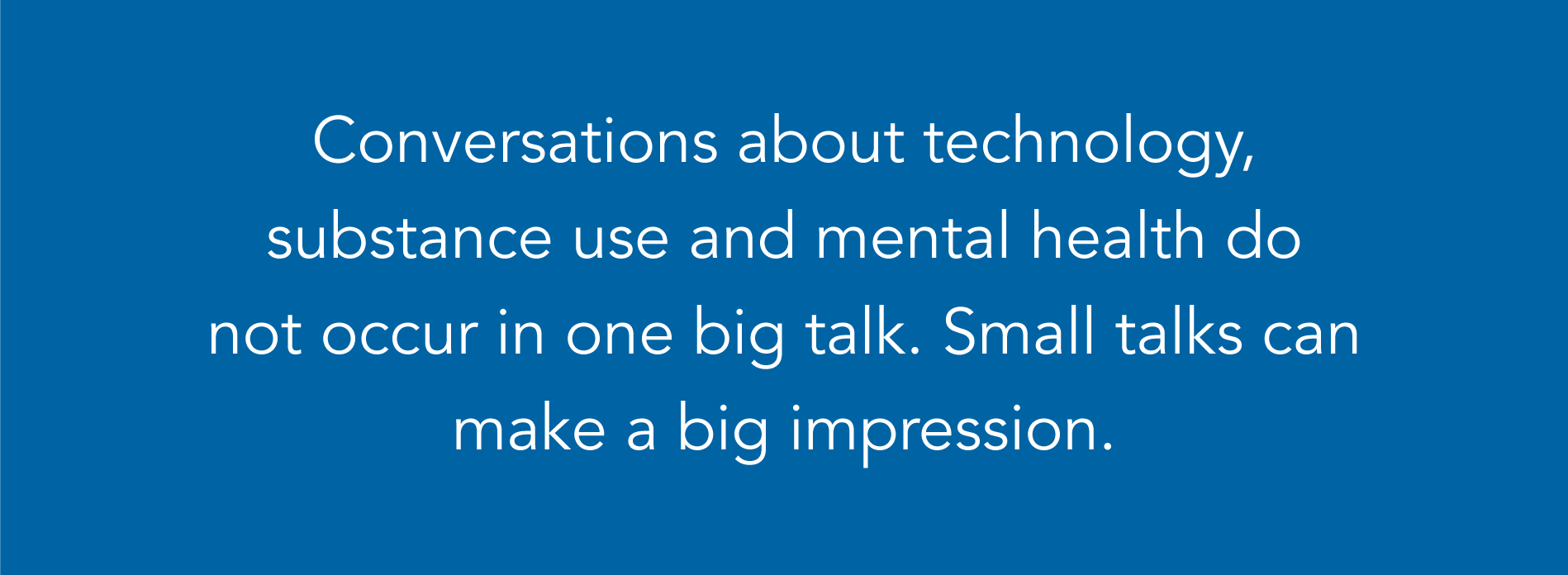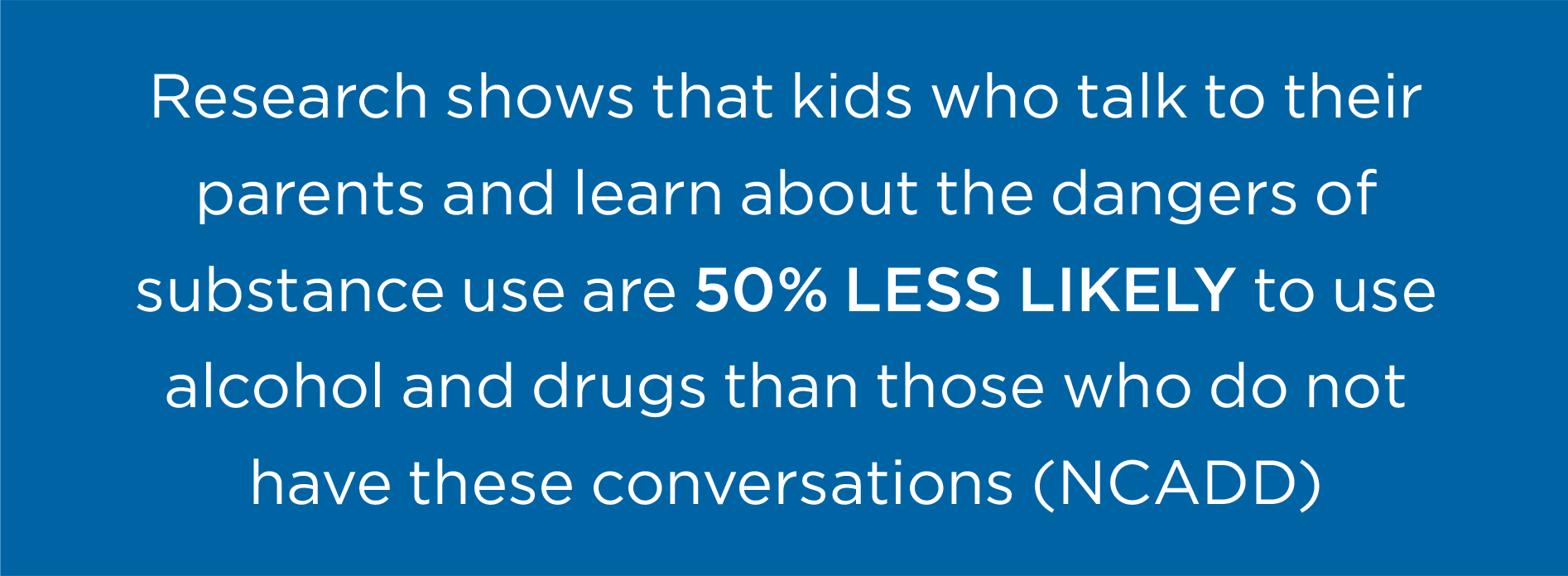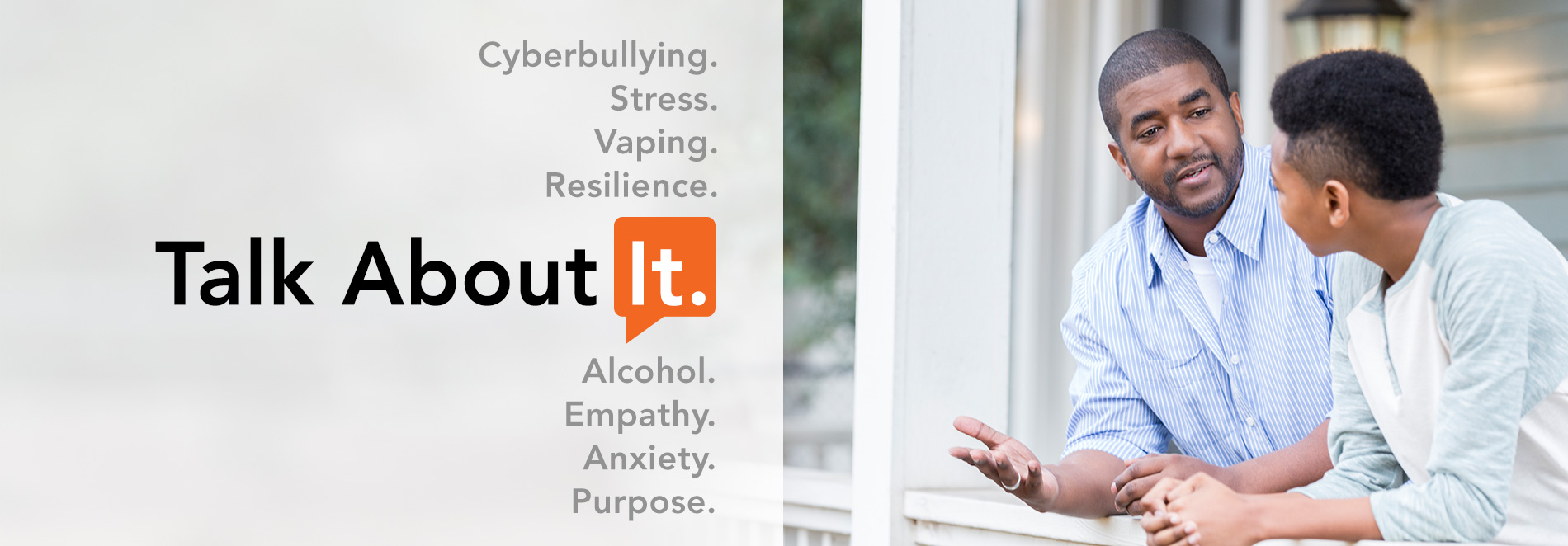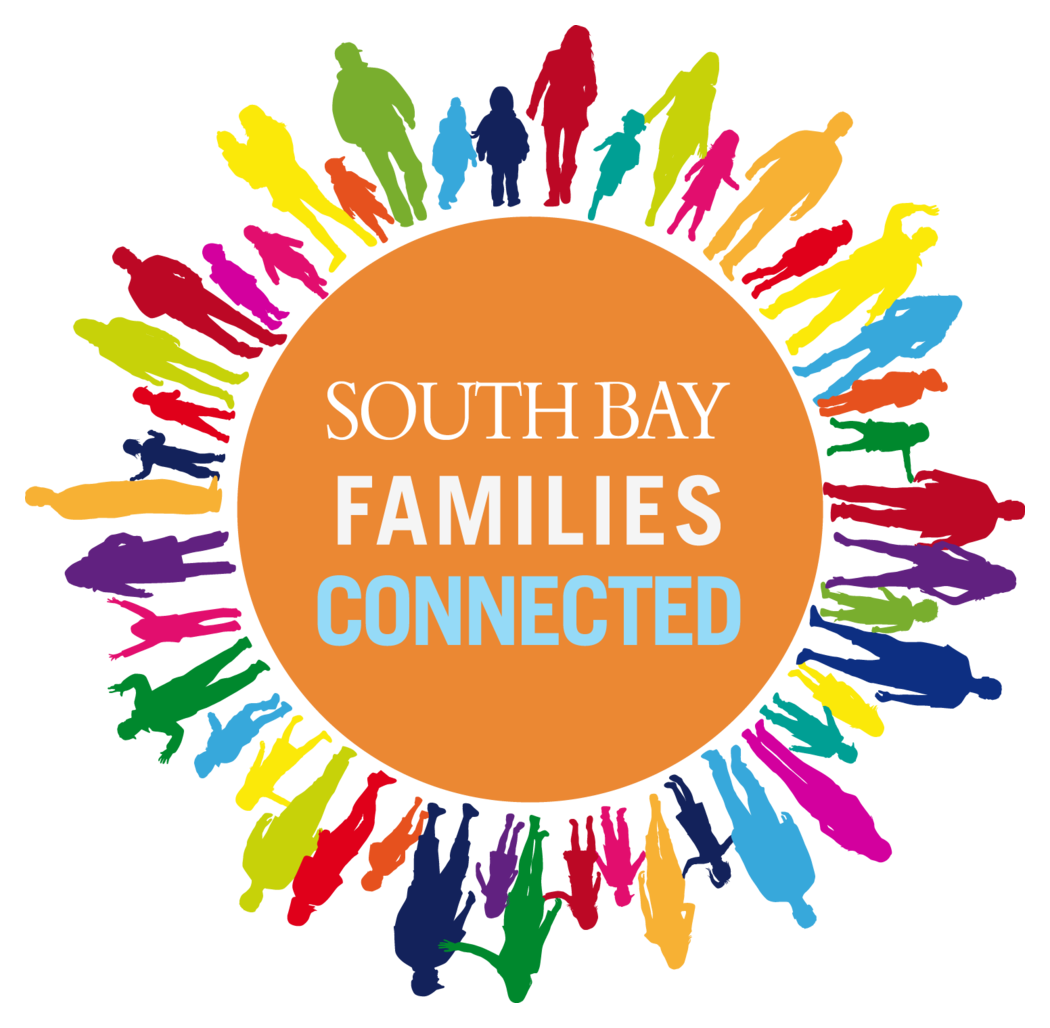• Choose a good time and place.
− Set aside time after dinner, before bed or on a walk or drive.
• Listen attentively and calmly – with interest, patience and openness.
• Avoid any urge to judge, blame or lecture. Let your child take the time to express their thoughts and feelings.
• Notice out loud. Tell your child when you notice something bothering them and if you can, label the feeling.
− “You haven’t been yourself lately.”
• Let your child know you are hearing what they’re saying by summing up what they’ve said and allowing them to confirm.
− “It seems like you’re feeling…”
• Use “I” statements to express yourself and describe how your child’s actions affect you and your feelings.
− “When you don’t come home on time, I worry that something terrible has happened to you. I need you to call me when you know you’ll be late, so I know you’re okay.”
• Ask open-ended questions to achieve a more engaging conversation.
• Communicate in a straightforward manner.
• Offer empathy and support.
• Create an environment where your child feels safe and comfortable.
• Let them know the teen years are tough, but you are there for them.
• Share your own stories so your kid knows they are not alone in their struggles.
• Show you care and want to understand.
• Support can be in the form of a hug, heartfelt words or simply being present and available.
• Discuss healthy ways to cope with their problems.
• Communicate the rules you have surrounding technology and substance use and discuss the consequences if they break those rules.
• Use age appropriate language. Elementary aged children will need fewer details than high school students.
• Ask your teen to think about their future and how the possible consequences will affect their dreams and goals.
• Understand your influence as a parent. You are the most important influence on your child, so talk early and talk often.
− Most children at age 6 know that alcohol is only for adults, but between ages 9-13, they start to view alcohol differently.
• Turn every day events into “teachable moments.”
− Talk about cyberbullying or vaping if it comes up on TV or on the radio.
Thursday, May 11, 2020: Talk About It Workshop: Facilitating Family Connection Through Physical Activity
Thursday, May 21, 2020: Talk About It Workshop: Mindfulness for the Family While Safer at Home
Thursday, May 28, 2020: Talk About It Workshop: Managing Family Conflict & Creating Balance at Home
Thursday, June 4, 2020: Youth Substance Use and Vaping with Clear Recovery Center
Thursday, June 11, 2020: Helping Your Senior: Tips for Helping Your Teen Cope with Missing Milestone Life Events
- Workshop Recording
- Resource Guide
- Blog: Tips for Helping Your Teen Cope with Missing Milestones Life Events




Partnership for Drug-Free Kids: How to Talk to Your Teen | MentalHealth.gov: Talk About Mental Health: For Parents & Caregivers | KidsHealth.org: Helping Kids Cope with Stress | KidsHealth.org: Helping Kids Handle Worry | Substance Abuse and Mental Health Services Administration: Why Small Conversations Make a Big Impression | Substance Abuse and Mental Health Services Administration: Help for Talking About Alcohol | National Council on Alcoholism and Drug Dependence, Inc.: Talking with Children






























